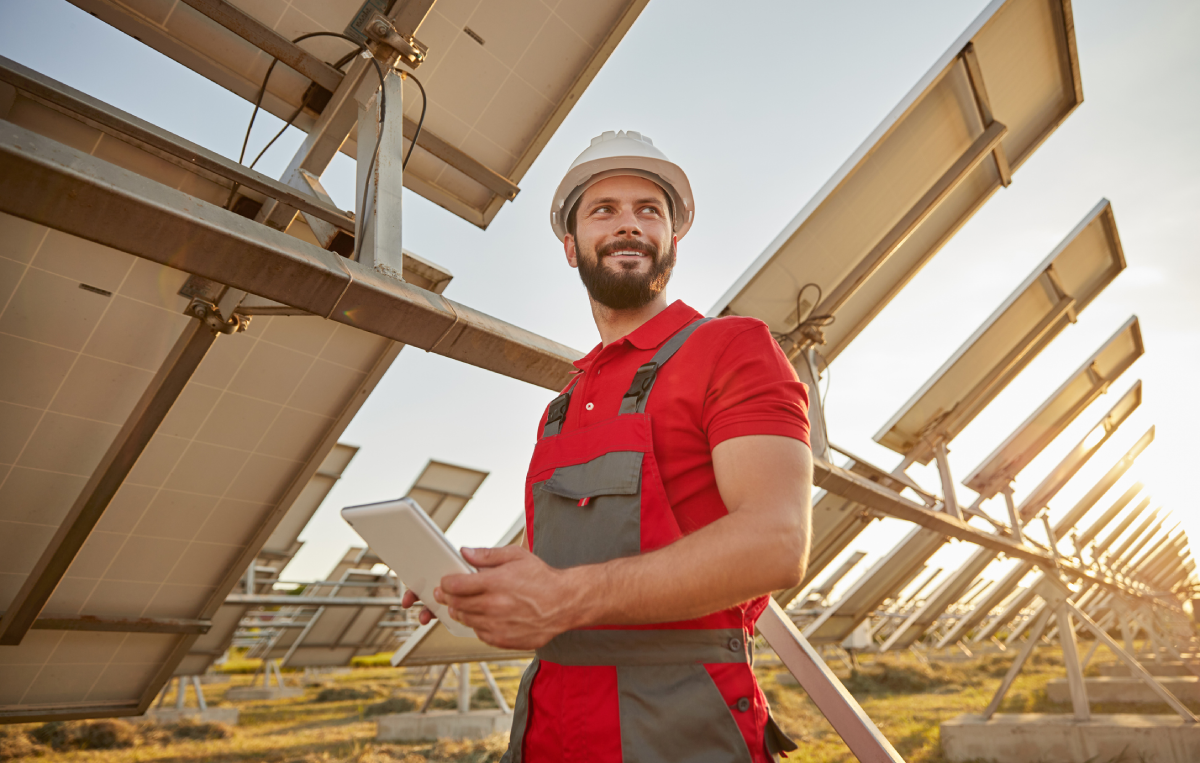Renewable Energy Technician Professional
Course Description
Our intensive 850-hour program, spanning 34 weeks, is meticulously designed to equip students with a robust understanding of renewable energy technologies, with a focus on photovoltaic (PV) systems. The curriculum is structured to provide both theoretical knowledge and practical skills, ensuring our graduates are well-prepared for the demands of the renewable energy industry. This Renewable Energy Technician Professional program is structured to launch an individual into a complete career in Solar Energy Technical Design, Maintenance, Installation, and Commissioning. There are two exams the student must complete, the initial NABCEP Certification and the Professional License exams. After completing the exam, the student becomes involved with proficiency to become a contractor, Consultant, or work with a reputable company at a decent earning. The program maintains and emphasizes all industrial standards and safety regulations.

Requirements
Admission is open to all persons. The school will admit individuals who have a High School diploma, GED, or equivalent. The "equivalent" means that the credential is equal to a US High School Diploma as confirmed by an evaluating company. The evaluation report must be sent to the admission office directly from the evaluating company.
A desire for a career in the solar renewable energy industry coupled with a strong drive to succeed is all that is required of an applicant. A member of the Admissions Department must interview all applicants. Applicants must demonstrate the ability to benefit from the training and be committed to completing their program of study. If the applicant desires to pursue a selected program, an appointment for a school tour is made for a future date, allowing time to investigate other schools and opportunities. All applicants who will seek federal and county grant funding to pay for their training offered through the Hudson County Career One-Stop, family services, and applicable state agencies must also complete an Aptitude and Assessment Test. If the applicant, by our admissions criteria, does not meet the minimum requirement for acceptance, they will be encouraged to improve their basic skills before enrollment. Upon request, the applicant will be given the location of the nearest Adult Learning Center. At this point, the applicant signs an enrollment agreement, and the application and registration fees are requested. Any applicant rejected by the school will receive a refund of all monies paid to the school. The applicant is given conditional acceptance until the school receives the applicant's high school diploma, GED, or Basic Skills Test scores.
To graduate, students must complete all required assignments and classwork with a final Grade Point Average (GPA) of 2.0 or above. Students must have a minimum attendance rate of 80 percent of the scheduled time. Tuition accounts must be satisfied. A student who satisfactorily completes a certificate program will receive a Certification of completion from Eferon Solar upon graduation. A NABCEP Associate Certificate will be issued to those students who pass the NABCEP examination and complete the certification program.
| Clock Hours Of Instructon | Tuition | Admin Fees | Textbook Fees | Tool/Supply Fees | Test/Licensing/Fees | Total Cost |
|---|---|---|---|---|---|---|
| 850 | $13,500 | $150 | $350 | $800 | $500 | $15,300 |
- Credentials: NABCEP PV Associates Certification and the Professional License exams
- Completion time: 6-12 months
- Total Hours: 850 hours
Salary Details:
- Entry-level positions typically start around $40,000-$50,000 per year
- Mid-level technicians with 3-5 years experience earn approximately $55,000-$75,000
- Senior technicians with advanced certifications and 5+ years experience can earn $80,000-$100,000+
A Day in the Life
Install photovoltaic (PV) systems in accordance with codes and standards, using drawings, schematics, and instructions.
Check electrical installation for proper wiring, polarity, grounding, or integrity of terminations.
Identify electrical, environmental, and safety hazards associated with photovoltaic (PV) installations.
Identify installation locations with proper orientation, area, solar access, or structural integrity for photovoltaic (PV) arrays.
Assemble solar modules, panels, or support structures, as specified.
Apply weather sealing to array, building, or support mechanisms.
Install module array interconnect wiring, implementing measures to disable arrays during installation.
Install required labels on solar system components and hardware.
Diagram layouts and locations for photovoltaic (PV) arrays and equipment, including existing building or site features.
Determine materials, equipment, and installation sequences necessary to maximize installation efficiency.
Test operating voltages to ensure operation within acceptable limits for power conditioning equipment, such as inverters and controllers.
Determine appropriate sizes, ratings, and locations for all system overcurrent devices, disconnect devices, grounding equipment, and surge suppression equipment.
Activate photovoltaic (PV) systems to verify system functionality and conformity to performance expectations.
Identify and resolve any deficiencies in photovoltaic (PV) system installation or materials.
Visually inspect and test photovoltaic (PV) modules or systems.
Examine designs to determine current requirements for all parts of the photovoltaic (PV) system electrical circuit.
Demonstrate system functionality and performance, including start-up, shut-down, normal operation, and emergency or bypass operations.
Identify methods for laying out, orienting, and mounting modules or arrays to ensure efficient installation, electrical configuration, or system maintenance.
Measure and analyze system performance and operating parameters to assess operating condition of systems or equipment.
Program, adjust, or configure inverters and controls for desired set points and operating modes.
Determine connection interfaces for additional subpanels or for connecting photovoltaic (PV) systems with utility services or other power generation sources.
Determine photovoltaic (PV) system designs or configurations based on factors such as customer needs, expectations, and site conditions.
Select mechanical designs, installation equipment, or installation plans that conform to environmental, architectural, structural, site, and code requirements.
Perform routine photovoltaic (PV) system maintenance on modules, arrays, batteries, power conditioning equipment, safety systems, structural systems, weather sealing, or balance of systems equipment.
Compile or maintain records of system operation, performance, and maintenance.
Install active solar systems, including solar collectors, concentrators, pumps, or fans.
Solar Renewable Energy Technician Professional: Solar Construction Manager
